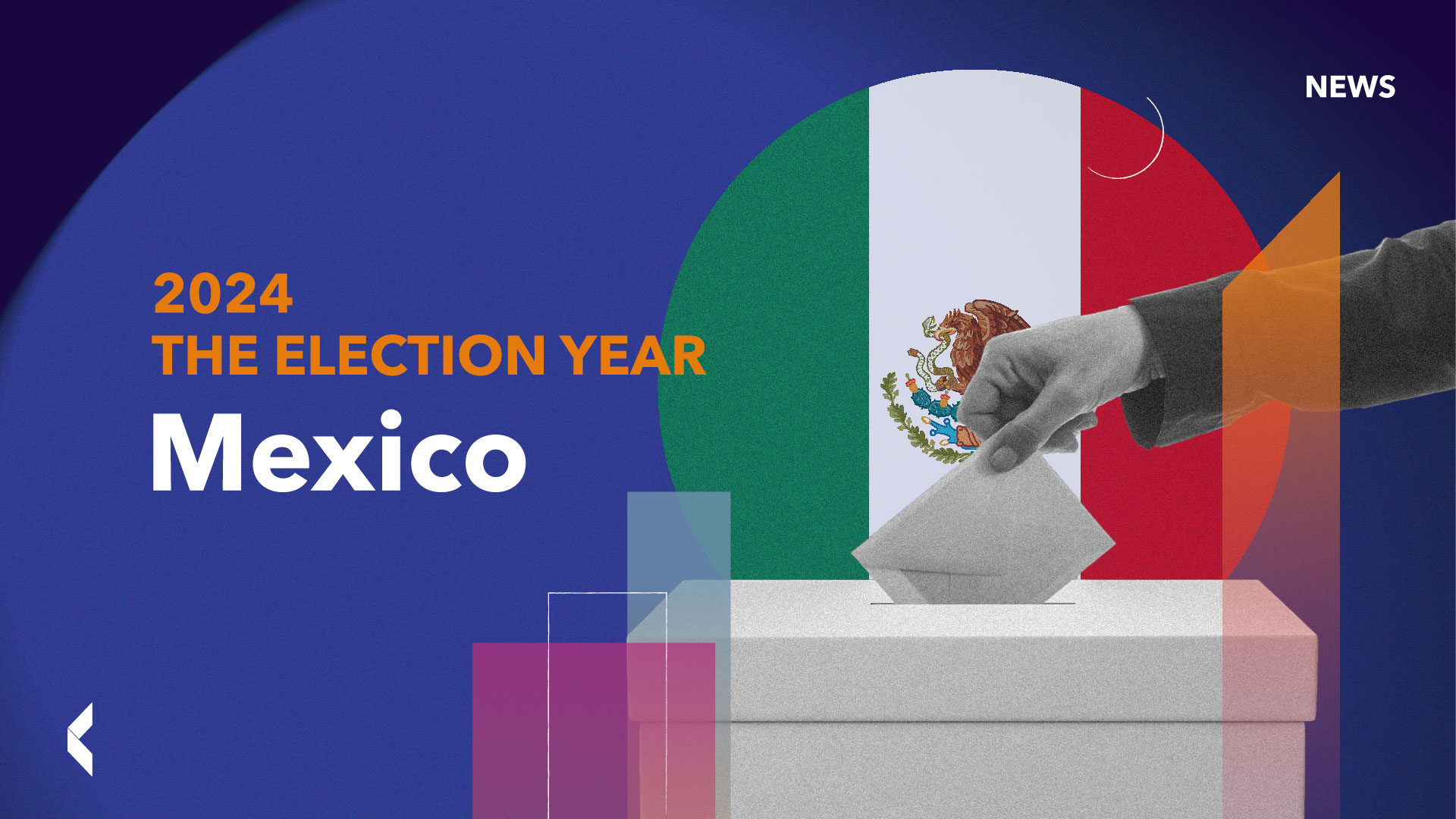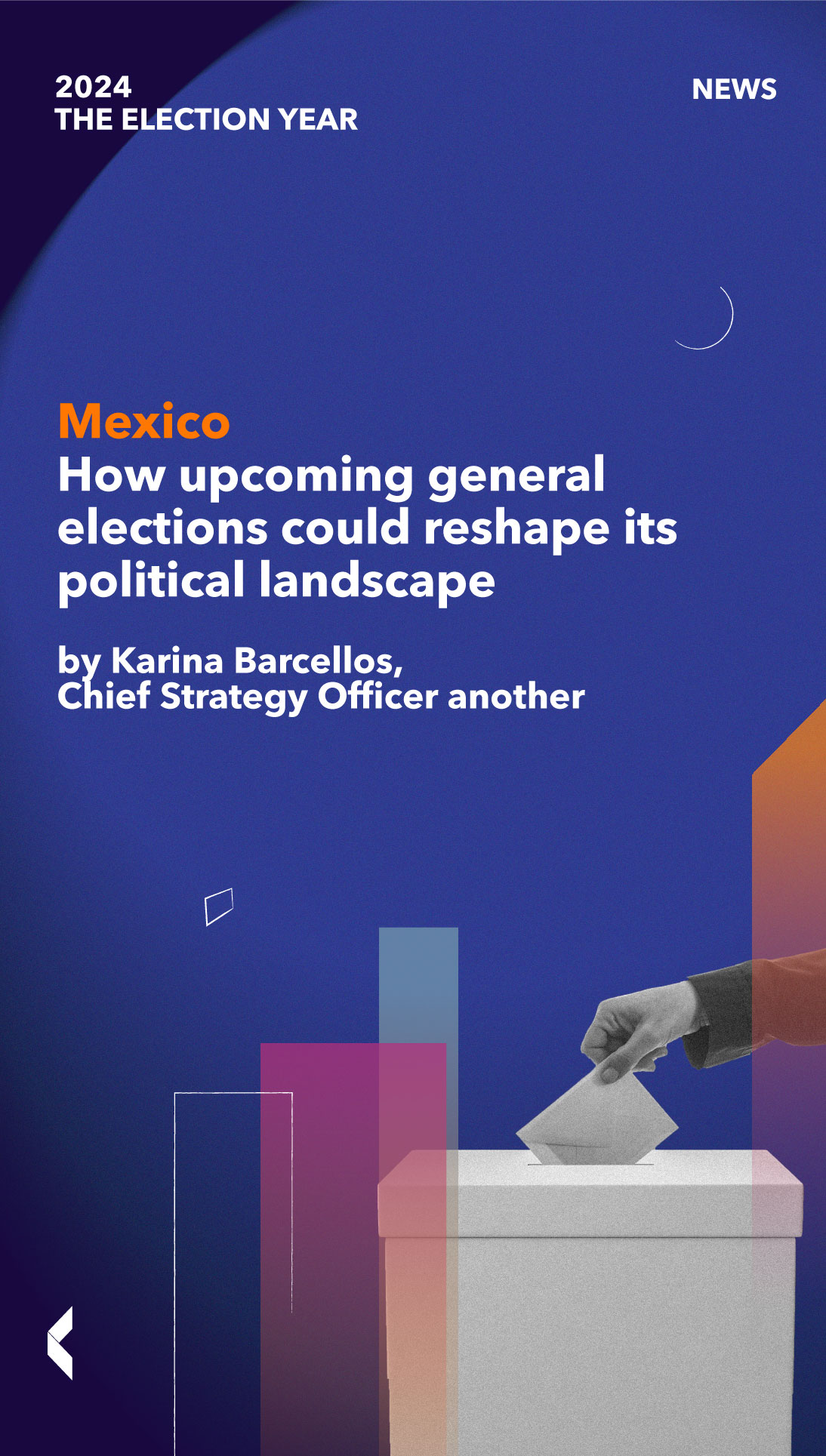About the Author
Mexico, as Latin America’s second-largest economy, plays a crucial role in both regional and global landscapes. Strategically located between North and South America, Mexico is a key player in trade agreements such as the USMCA and the Pacific Alliance, and an active member of the G20. Its robust manufacturing sector, particularly in automotive and electronics, integrates deeply with global supply chains. Recently, the nearshoring effect has become a key opportunity for both the local government and external investment. Additionally, Mexico’s natural resources and energy sector, including oil and renewables, are vital to global markets.
Politically, Mexico’s positions on migration, drug trafficking, and climate change have significant implications for its neighbors and the broader international community. The upcoming elections will thus have far-reaching effects, influencing not only domestic policies but also regional and global dynamics.
Key Contenders and Political Dynamics
As Mexico approaches its general elections on June 2, 2024, the nation stands at a pivotal moment. These elections will not only decide the next president but also the entire Chamber of Deputies (lower house) and the Senate of the Republic (upper house), and Governorships in key states such as Jalisco, Veracruz, and Tabasco. The current administration of President Andres Manuel Lopez Obrador (AMLO) from the National Regeneration Movement (MORENA) has initiated significant political and social changes, which resulted in significant polarization and public debate about the country’s direction.
Leading the race are Claudia Sheinbaum from MORENA, who seeks to continue AMLO’s policies, and Xóchitl Gálvez from a coalition between the National Action Party (PAN), the Institutional Revolutionary Party (PRI) and the Democratic Revolution Party (PRD), advocating for more conservative, market-friendly reforms. Another relevant candidate is Jorge Álvarez Máynez from the Citizens Movement (MC), who has gained traction among younger voters with his progressive stance on social issues and anti-corruption efforts.
Rise of Opposition and Potential Shifts
The governing party, MORENA, gained momentum largely due to the profile of Andrés Manuel López Obrador (AMLO), who campaigned for nearly 18 years after losing two previous presidential elections. His victory was significantly supported by a protest vote against the Institutional Revolutionary Party (PRI) and the administration of former President Enrique Peña Nieto. Six years later, while AMLO’s approval ratings appear to benefit Claudia Sheinbaum, MORENA’s candidate, the party now faces potential backlash due to perceived shortcomings in its policies and results. This dissatisfaction could lead to a protest vote favoring Xóchitl Gálvez and the coalition of PRI, PAN, and PRD that supports her.
Impact on Social and Economic Policies
The election outcome could shape Mexico’s future on economic reform, social justice, and international relations. A Sheinbaum victory would extend AMLO’s social programs and infrastructure projects, while a win for Gálvez might pivot towards more centrist or liberal economic policies. Both candidates have stated that they do not plan to pursue any tax reforms during the initial years of their administrations.
Implications for Trade Ties with the US and Latin America
The upcoming elections are crucial for the relationship between Mexico and its largest trading partner, the United States. If Claudia Sheinbaum wins, she is likely to continue AMLO’s cautious approach to trade, prioritizing national sovereignty and social justice. This stance could result in tensions within the USMCA, particularly over labor rights and environmental standards.
On the other hand, a victory for Xóchitl Gálvez could lead to a more open stance on trade and investment, potentially strengthening economic ties with the US. Gálvez might also seek to revisit certain aspects of the USMCA to foster better cooperation and resolve disputes more effectively. Additionally, she may work towards diversifying Mexico’s trade relations within Latin America, enhancing integration with countries such as Brazil, Argentina, and Chile.
Both candidates recognize the benefits of foreign investment and the opportunities presented by nearshoring with the US. Unlike AMLO’s controversial relationships with countries like China and Russia, both Sheinbaum and Gálvez are expected to adopt a more straightforward approach to foreign investment and maintain robust relations with Mexico’s North American neighbor.
Ramifications for EU Entities with an Interest in Mexico
For European Union entities, the election results could impact trade and investment prospects. Sheinbaum might prioritize social and environmental regulations, affecting sectors like mining, energy, and manufacturing, posing challenges and opportunities in green technologies. A Gálvez-led government could adopt business-friendly policies, encouraging foreign investment and easing regulations, benefiting EU companies in automotive, pharmaceuticals, and technology.
Looking Ahead
As Mexico heads to the polls, the stakes are high. The elections will not only determine the nation’s leadership but also its political and economic future. The world watches with anticipation as Mexico stands on the brink of significant transformation.

